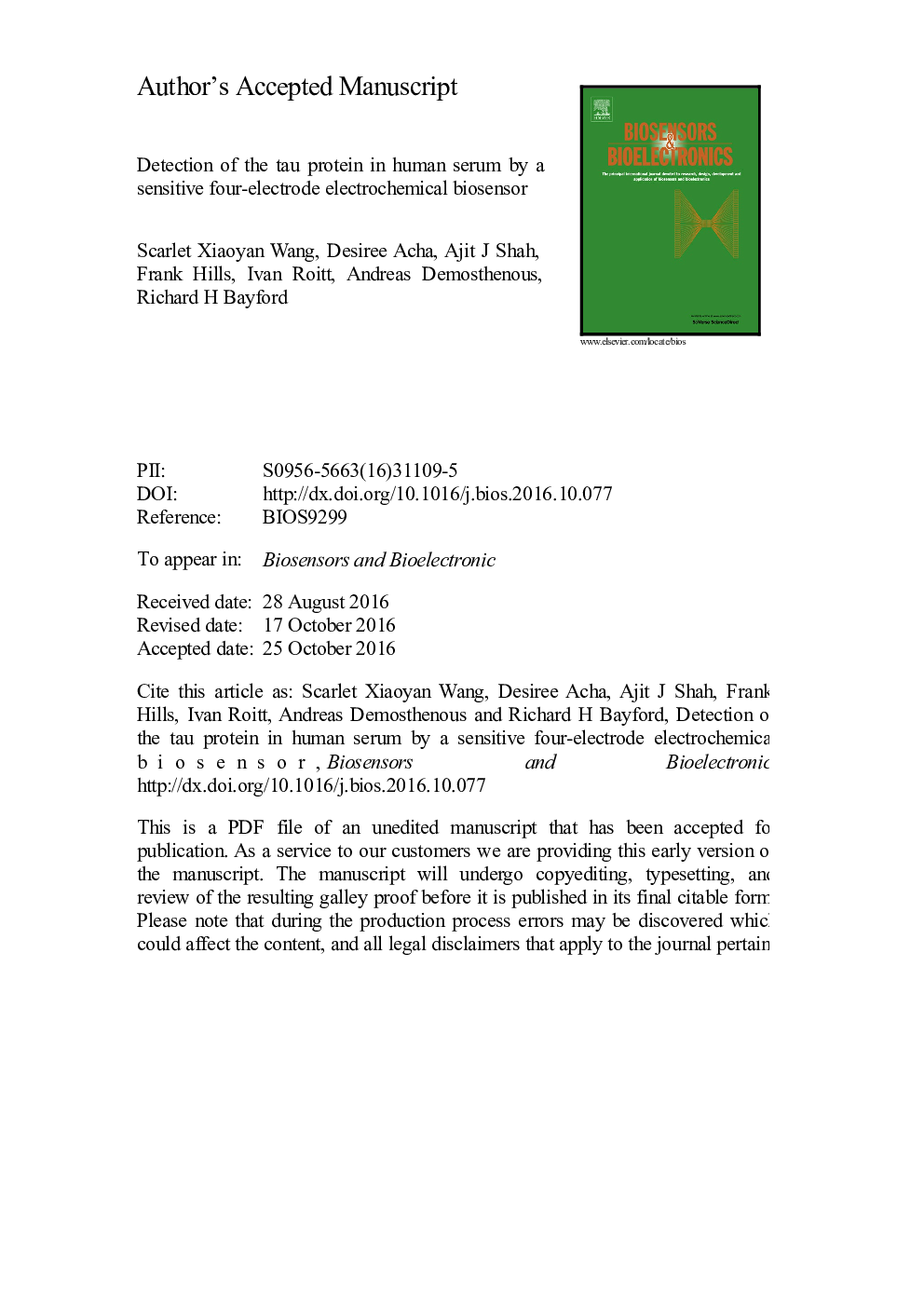| Article ID | Journal | Published Year | Pages | File Type |
|---|---|---|---|---|
| 5031630 | Biosensors and Bioelectronics | 2017 | 15 Pages |
Abstract
This study presents a novel approach based on a four-electrode electrochemical biosensor for the detection of tau protein - one of the possible markers for the prediction of Alzheimer's disease (AD). The biosensor is based on the formation of stable antibody-antigen complexes on gold microband electrodes covered with a layer of a self-assembled monolayer and protein G. Antibodies were immobilized on the gold electrode surface in an optimal orientation by protein G interaction. Electrochemical impedance spectroscopy was used to analyze impedance change, which revealed a linear response with increasing tau concentrations. The assay is fast (<1Â h for incubation and measurement) and very sensitive. The limit of quantification for the full-length 2N4R tau protein is 0.03Â pM, a value unaltered when the assay was processed in bovine serum albumin or human serum. This technology could be adapted for the detection of other biomarkers to provide a multiple assay to identify AD progression in a point of care setting.
Related Topics
Physical Sciences and Engineering
Chemistry
Analytical Chemistry
Authors
Scarlet Xiaoyan Wang, Desiree Acha, Ajit J. Shah, Frank Hills, Ivan Roitt, Andreas Demosthenous, Richard H. Bayford,
